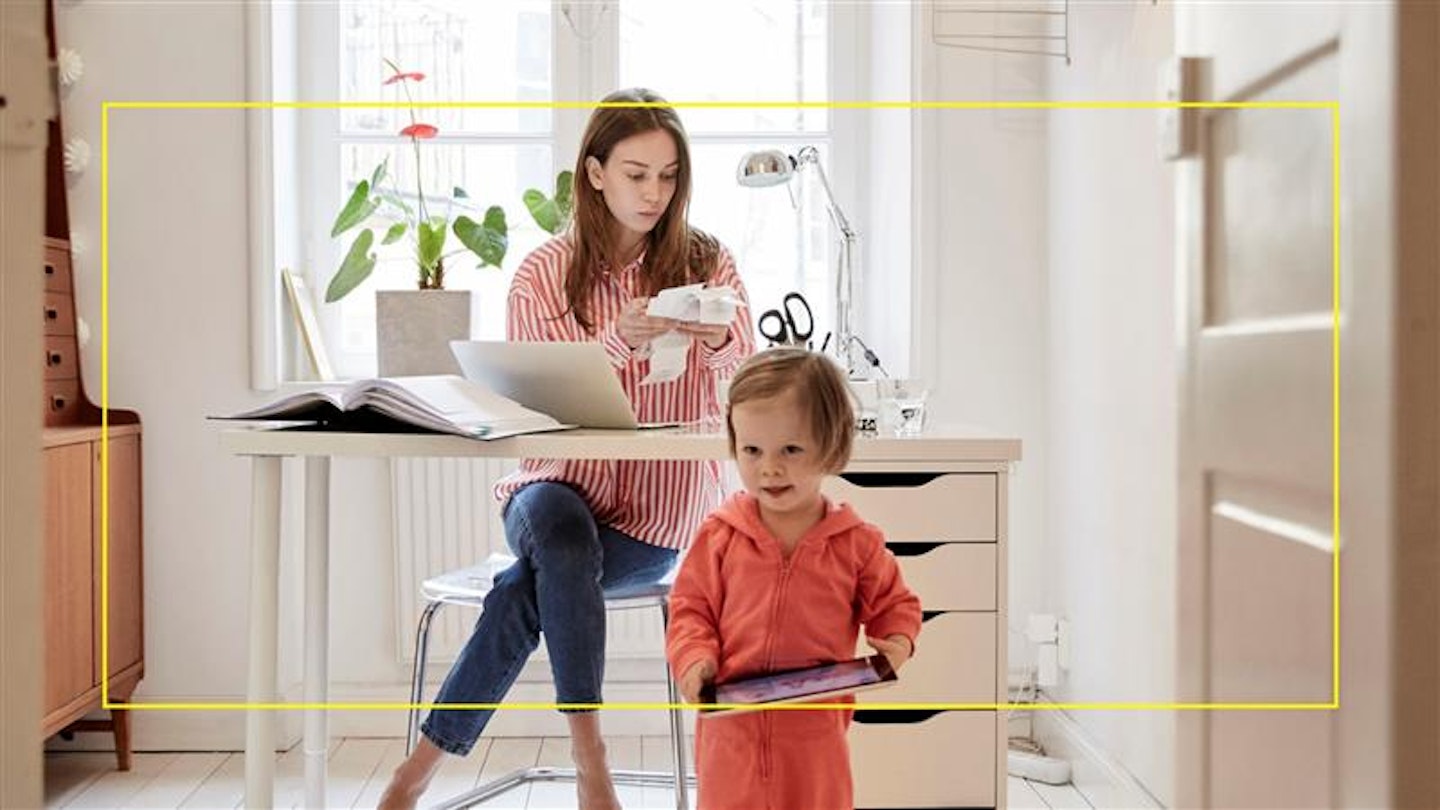We're all well versed in the concept of the motherload, and how mothers tend to do more of the 'invisible work' that goes with being a parent. And we know this contributes to fatigue, overwhelm and that overarching sense of never being able to take a mental break. One of these key pieces of this invisible work is organising childcare, which often ends with them taking on more of it.
‘The nursery wouldn’t take my daughter because she had a cold, so I had to work from home and sit her in front of the TV.’
‘We don’t have any family nearby so I asked my neighbour’s teenage daughter if she’d look after my son so I could get my head down and do some work.’
‘My partner’s job takes priority so if our childcare doesn’t work out then it’s me scrabbling around trying to find a solution.’
These are just some of the quotes I've heard from mothers who have discovered thatthe job of arranging childcareis more often than not left firmly at their door. As Grazia has previously highlighted, childcare is not only a significant expense, one that often results in women having to drop out of work, but more often than not it's a female concern.
According to new research from the thinktank Centre for Progressive Policy (CPP), nearly half of working women provide 45 hours of unpaid care each week, while 25% of men provide 17 hours.
The CPP says this unpaid care is 'one of the driving forces of gender-based inequalities in the workplace', and that it 'disproportionately impact women and exacerbate workplace inequality.'
A recent global study (called Mothers, children and the global childcare crisis) found women are typically undertaking 75% of the childcare responsibilities and in two-parent families where both parents worked, mothers undertook the larger share of childcare-related responsibilities, especially in relation to managing children’s schedules and taking care of children when ill.
Arranging childcare has become just another part of the motherload – organising playdates, sports activities, children’s parties, ‘World Book Day’ costumes, and asking friends (typically other mothers) to paper over any cracks in your childcare arrangements. And when all else fails? Doing it ourselves.
This extends to the way we talk about childcare. Newspaper headlines like ‘Childcare costs stopping mothers from going to work’ and ‘Mothers priced out of the workplace as childcare costs rise’ seem to suggest that the cost of childcare is also a mother’s concern.
However, coming out of the pandemic, we need change. Fathers who’ve worked from home for the past two years have had more exposure to the daily struggle of organising childcare. Childcare and the work that goes into planning it has therefore become more top of mind (and they may have become accustomed to seeing male colleague’s kids making brief Zoom cameo appearances in the background, too).
As the dust settles and ‘normal life’ resumes, it’s clear that arranging childcare needs to be a shared parental concern. One way to make this happen is to normalise conversations around it so it’s not only women who are talking about it.
Wouldn’t it be liberating to read a profile of a successful man and hear him being asked about how he juggles childcare with his hefty work schedule? Or how the price of childcare is one of the things a father takes into consideration when it comes to accepting a new role?
Male role models also feel important in switching things up. If men see other men in the public eye being vocal about childcare and playing a more active role in arranging it, then we can start to change gendered expectations.
Chris Ashton a former England rugby player recently said: ‘As a parent, having access to childcare that you can trust is really important and this can prove challenging for some families, mine included.’ (This comment was made as part of the partnership between Bubble childcare and The Rugby Players Association). Hearing a male sports star talking about childcare felt refreshing, and plays a part in normalising conversations around the realities of juggling it.
We also need to move away from the idea that fathers are ‘helping out’ when they get involved in arranging childcare, that they are ‘hands on dads’ for simply doing drop offs or pick ups. And also the idea that they are better at the ‘fun stuff’ (the age old stereotype of dads being the more playful, relaxed parent reinforces the idea that women are better at the dull, drudge stuff).
Or as one of the mums at the school gates recently said to me: ‘I feel guilty that I’m not the fun one but I often feel weighed down by all the stuff I have to sort out each day.’
Whether mothers are deemed as ‘fun enough’ is just another societal pressure that has to be navigated, but arranging childcare is something that should no longer be solely a female concern. Fathers are beginning to take on more of the responsibility and there is a need to build on this. In short, we need create a ‘Parental load’ and scrap the debilitating and weary-making 'Motherload' once and for all.
